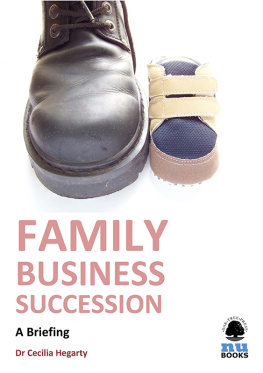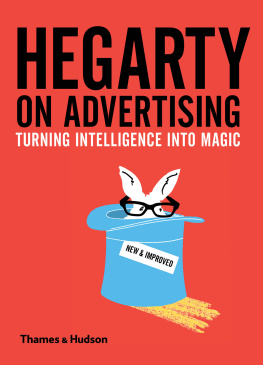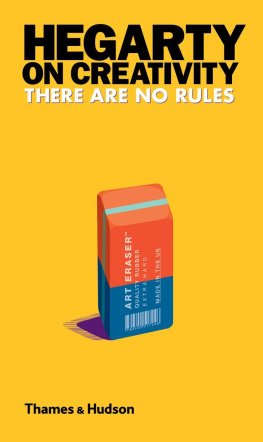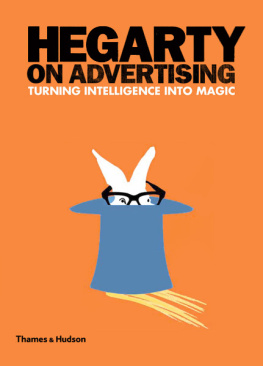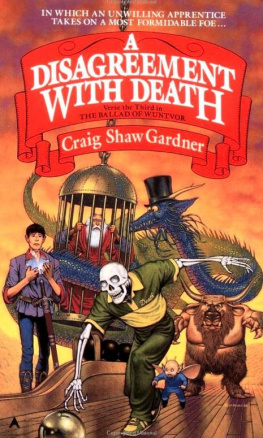Peter Hegarty is Reader and Head of the School of Psychology at the University of Surrey.
The University of Chicago Press, Chicago 60637
The University of Chicago Press, Ltd., London
2013 by The University of Chicago
All rights reserved. Published 2013.
Printed in the United States of America
22 21 20 19 18 17 16 15 14 13 1 2 3 4 5
ISBN-13: 978-0-226-02444-8 (cloth)
ISBN-13: 978-0-226-02458-5 (paper)
ISBN-13: 978-0-226-02461-5 (e-book)
Library of Congress Cataloging-in-Publication Data
Hegarty, Peter (Psychology professor)
Gentlemens disagreement : Alfred Kinsey, Lewis Terman, and the sexual politics of smart men / Peter Hegarty.
pages. cm
Includes bibliographical references and index.
ISBN 978-0-226-02444-8 (hardcover : alk. paper)ISBN 978-0-226-02458-5 (pbk. : alk. paper)ISBN 978-0-226-02461-5 (e-book) 1. MenSexual behavior. 2. MenIntelligence levels. 3. Kinsey, Alfred C. (Alfred Charles), 18941956. 4. Terman, Lewis M. (Lewis Madison), 18771956. I. Title.
HQ28.H443 2013
155.332dc23
2012039521

This paper meets the requirements of ANSI/NISO Z39.481992 (Permanence of Paper).
Acknowledgments
This book would not have been possible without the imagination, encouragement, and insight of many people. For example, Doug Mitchell imagined a version of the project years before I could even articulate it. The British Academy supported initial archival work in 2003 at Stanford and Indiana Universities, and Simon Ford, Katie Cumiskey, and Robin Garber all provided warm hospitality as I went. Linda Anderson made possible a later trip to the Yale archives. Im particularly grateful for the help of several archivists, notably Daniel Hartwig at Stanford, Lizette Ann Royer at Akron, Rebecca Hatcher at Yale, and Shawn Wilson at the Kinsey Institute.
Two previous Heads of the School of Psychology at Surrey deserve particular thanks; Jennifer Brown approved a term of sabbatical leave in 2007 that gave me the space and time to dig deep into this work, and Annette Sterr put up with my continued efforts and distracted attention as I acted as her Deputy Head from 2008 to 2011. Abigail Stewart invited me to Michigan in 2006 for a pivotal visit that allowed me to explore my initial ideas with both psychology and womens studies students. Don Brown, Bill McCeachy, and Mel Manis shared valuable memories of their own lives in the history of psychology. Their memories of psychologists E. Lowell Kelly, Lewis Terman, and Dana Bramel particularly informed my thinking.
At various times and places, scholars who know more about diverse areas of scholarship than I do have read drafts of some of these chapters, provided me with opportunities to talk about this work, offered their reflections and criticisms of it, and pointed me down new unexpected directions. Often their intellectual gifts were not obvious to me at the times of our conversation, but I owe particular debts to Stephen Algelides, Naomi Andre, Gavi Ansara, Meg Barker, Peter Baxter, Betty Bayer, Toni Brennan, Karl Bryant, Geoff Bunn, Jim Capshew, John Carson, Angela Cassidy, George Chauncey, Martin Cheek, Fran Cherry, Victoria Clarke, Liz Cole, Alan Collins, Kate Crehan, Adrian Coyle, Nicola Curtin, Lisa Downing, Michelle Fine, David Gibson, Eoin Gibson, Phil Goff, Gareth Hagger-Johnson, Peter Hair, David Halperin, Ellen Herman, Ian Hodges, Nadine Hubbs, Darren Langdridge, Larry LaFountain-Stokes, Kinsten Leng, Lih-Mei Liao, Ram Mahalingam, Sarah McClelland, Joanne Meyerowitz, Lisa Moore, Julie Perks, Felicia Pratto, Pete Lamont, Michael O Rourke, Liz Peel, Mike Pettit, Wade Pickren, Hans Pols, Freyja Quick, Graham Richards, Katrina Roen, Joe Rollins, Alex Rutherford, David Serlin, Stephanie Shields, Charlotte Sleigh, Jennifer Terry, Naoko Wake, David Winter, and Leila Zenderland.
Finally, my thanks go out to the team at University of Chicago Press for helping me to bring this project to fruition, particularly Richard Allen for his careful editing, and Tim McGovern for managing the process of publication.
This book is for my mother Nuala and my father Seamus; for my five siblingsthe teammates my parents gave me in this life; and for Andrew Penman, the partner I chose for myself. None of these people would expect me to dedicate this book to them, but they believed in its completion when I doubted it the most myself. More than my words, they prove my argument that a bright future is easiest to imagine when life is approached with a team size that is bigger than one.
Materials from published and unpublished papers of Lewis Terman and from papers of Alfred Kinsey (including unpublished correspondence) have been used with permission from Stanford University Press and the Kinsey Institute for Research in Sex, Gender, and Reproduction at Indiana University, respectively.
A Gentlemens Disagreement?
Just what facts would have been convincing about the superiority of the method of ordinary interviewing are not clear to us, and therefore the bald statement that Termans Data would have been more reliable if they had been obtained by direct interviewing (Kinsey, Pomeroy, and Martin, p. 31) is all the more galling. It is proper for some toes to be trodden on in a scientific investigation, but a smile in return for a scientific treading is to be hoped for only when evidence is presented. Authority contradicting authority gets us nowhere.
Cochran, Mosteller, and Tukey, Statistical Problems of the Kinsey Report on Sexual Behavior in the Human Male (1954, 76)
To my knowledge, Alfred C. Kinsey met Lewis M. Terman face to face only once, on the campus of Stanford University in 1952. It occurred after a talk that Kinsey had given about his sex research. The meeting was brief, perhaps because these two had said so much to each by other means four years earlier. On January 5, 1948, Kinsey had published the best-selling popular science book of a generation, Sexual Behavior in the Human Male (SBHM). The reported sexual histories of the 5,300 White men within its 804 pages stayed on the bestseller list for months. At $6.50, SBHM transformed booksellers imaginations of just how avidly the public might consume science. Sexual Behavior in the Human Female, an equally profitable and voluminous book on the sexuality of women, would follow five years later.
Kinseys sex research is widely interpreted as a moment in what Paul Robinson (1977) called the modernization of sex: the shift from religious to
The other party to this meetingpsychologist Lewis M. Termancelebrated his seventy-third birthday just twelve days after the publication of SBHM in 1948. Terman had retired six years earlier from a long career as chair of the Stanford psychology department. When Terman read Kinseys book, he was less convinced than the American public, or its press, that Kinsey had achieved a work of scientific genius. Terman worked diligently on a long review of the book, which he submitted unsolicited in May 1948 to Lyle Lanier, the editor of the journal

 This paper meets the requirements of ANSI/NISO Z39.481992 (Permanence of Paper).
This paper meets the requirements of ANSI/NISO Z39.481992 (Permanence of Paper).


